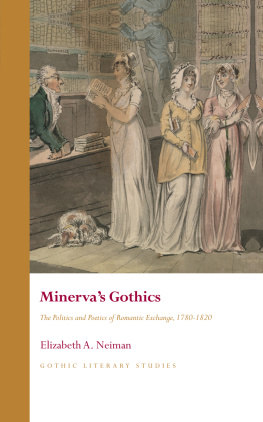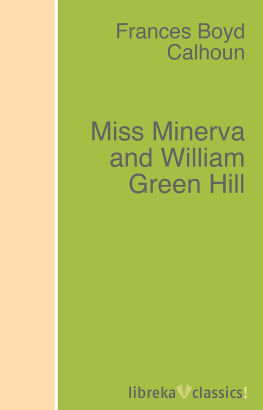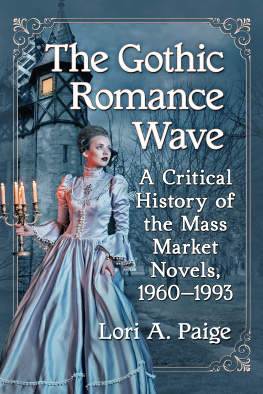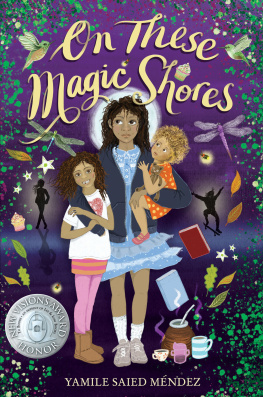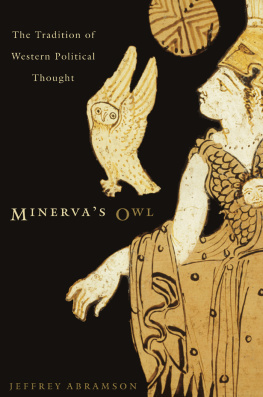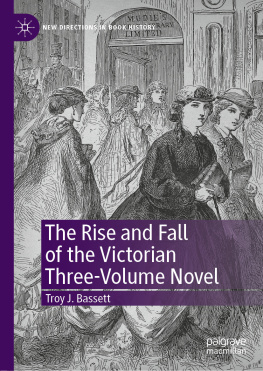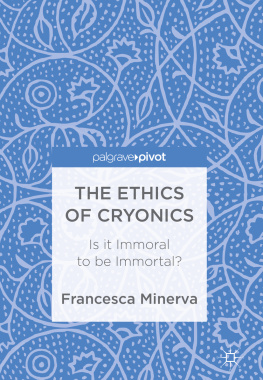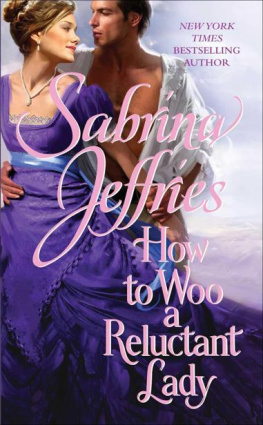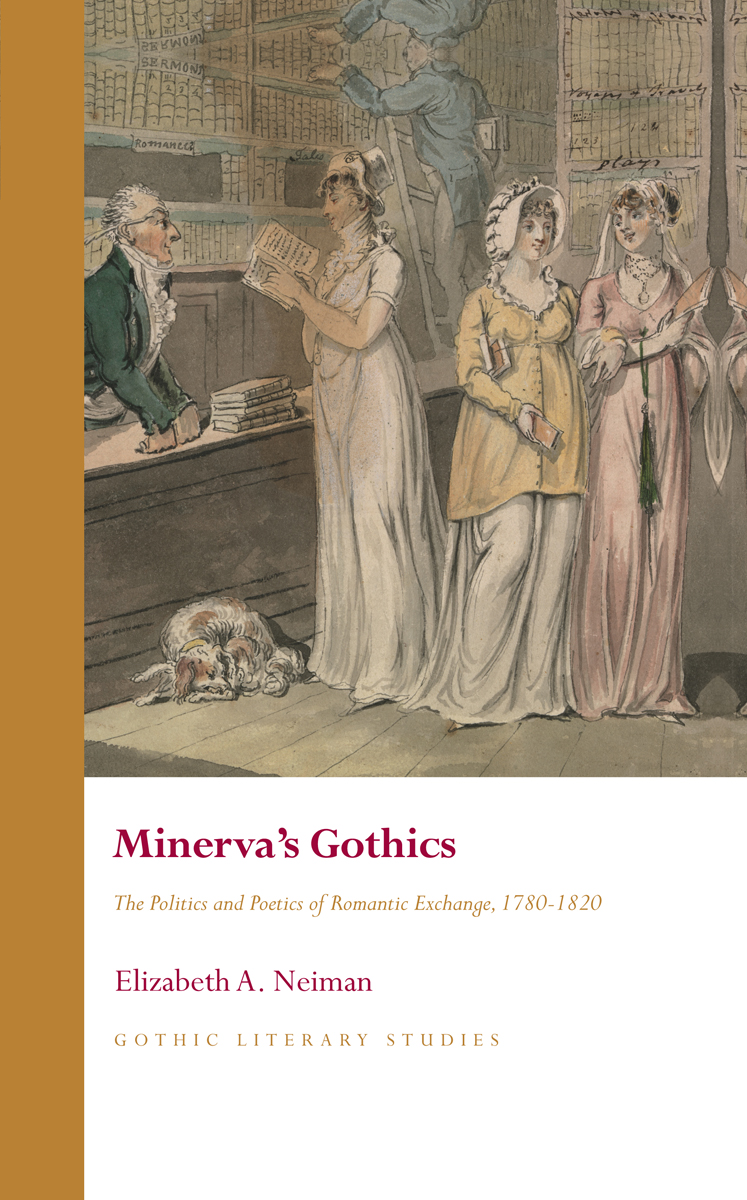
MINERVAS GOTHICS
SERIES PREFACE
Gothic Literary Studies is dedicated to publishing groundbreaking scholarship on Gothic in literature and film. The Gothic, which has been subjected to a variety of critical and theoretical approaches, is a form which plays an important role in our understanding of literary, intellectual and cultural histories. The series seeks to promote challenging and innovative approaches to Gothic which question any aspect of the Gothic tradition or perceived critical orthodoxy. Volumes in the series explore how issues such as gender, religion, nation and sexuality have shaped our view of the Gothic tradition. Both academically rigorous and informed by the latest developments in critical theory, the series provides an important focus for scholarly developments in Gothic studies, literary studies, cultural studies and critical theory. The series will be of interest to students of all levels and to scholars and teachers of the Gothic and literary and cultural histories.
SERIES EDITORS
Andrew Smith, University of Sheffield
Benjamin F. Fisher, University of Mississippi
EDITORIAL BOARD
Kent Ljungquist, Worcester Polytechnic Institute Massachusetts
Richard Fusco, St Josephs University, Philadelphia
David Punter, University of Bristol
Chris Baldick, University of London
Angela Wright, University of Sheffield
Jerrold E. Hogle, University of Arizona
Elizabeth A. Neiman, 2019
All rights reserved. No part of this book may be reproduced in any material form (including photocopying or storing it in any medium by electronic means and whether or not transiently or incidentally to some other use of this publication) without the written permission of the copyright owner except in accordance with the provisions of the Copyright, Designs and Patents Act. Applications for the copyright owners written permission to reproduce any part of this publication should be addressed to the University of Wales Press, University Registry, King Edward VII Avenue, Cardiff CF10 3NS.
www.uwp.co.uk
British Library Cataloguing-in-Publication Data
A catalogue record for this book is available from the British Library.
ISBN 978-1-78683-367-9
eISBN 978-1-78683-369-3
The right of Elizabeth A. Neiman to be identified as author of this work has been asserted by her in accordance with sections 77 and 79 of the Copyright, Designs and Patents Act 1988.
The publisher has no responsibility for the persistence or accuracy of URLs for any external or third-party internet websites referred to in this book, and does not guarantee that any content on such websites is, or will remain, accurate or appropriate.
Cover image: Isaac Cruikshank, The Lending Library, watercolour (c.1800). By permission, Yale Center for British Art, Paul Mellon Collection.
To Dylan Dryer, and to Emma and Simon Dryer-Neiman, with love and gratitude
C ONTENTS
Because this book has been long in the making, many acknowledgements are due. Special thanks, however, are due to University of Maine colleagues and especially English department chairs Naomi Jacobs, Richard Brucher, Laura Cowan and Steven Evans. Without their advocacy, I would not have had the time, space or resources to complete this book. I also want to take the opportunity to thank Naomi Jacobs, Ben Friedlander, Jennifer Moxley and Sarah Harlan-Haughey for reading chapters from the manuscript at key points along the way, and with pleasure acknowledge other UMaine colleagues for their encouragement, most especially Jessica Miller, Mazie Hough and Susan Gardner.
My research on Minerva began some ten years prior as a doctoral student at the University of Wisconsin, Milwaukee. There, Bruce Horner and Min Zhan Lu taught me to take the work of marginalized writers seriously, a pedagogical practice that influences how I approach and read Minerva novels. Now a faculty member myself, I am especially grateful to Sukanya Banerjee and Barrett Kalter for helping to supervise a project outside their areas of expertise and when still on the tenure track. The dissertation was, as it turns out, just a starting point for this book. I owe special thanks to my students at the University of Maine. Their creativity and dedication helped me to make progress on questions important to my research through a series of advanced undergraduate and graduate level courses. I have also benefited enormously from presenting my work at conferences in both North America and the UK. The scholarship of and more informal exchanges with Anthony Mandal, Jennie Batchelor, Edward Jacobs, Yael Shapira, Christina Morin, Hannah Doherty Hudson and Daniel Mangiavellano imprint this book. I am particularly grateful to Anthony Mandal for his thoughtful and thorough reading of my manuscript at a critical point in its development, and for offering his journal, Romantic Textualities: Literature and Print Culture, 17801840, for a forthcoming special issue on the Minerva Press (2019). Thanks also to April London for providing a forum for annotations on novels not featured in this book with the invitation to submit to The Cambridge Companion Guide to the Eighteenth-Century Novel, 16601820, and to Mark Towsey, whose AHRC-funded research colloquia Libraries in the Atlantic World (201415) helped me to think more expansively about my project at an early stage in its inception.
A Chawton House Library fellowship was instrumental to my research and I extend a warm thanks to librarian Derren Bevin for allowing me free range of the stacks. Thanks also to Derren for his willingness at the eleventh hour to retake photos for a higher resolution print than I had available. Acknowledgement is also due to special collections librarians at the New York Society Library and the University of Minnesota library for providing me with a comfortable place to sit and read.
As a version of the second half of was published in European Romantic Review in September 2015, thanks to Taylor & Francis for permission to reprint. I am particularly grateful to ERR editors Regina Hewitt and the late Diane Long Hoeveler for agreeing to send this article out for a second round of reviews after it had been rejected on a third read, following a mixed review. This extended review process was instrumental and a starting point for the book as it introduced me to scholarship of which I was unaware, and pushed me to clarify and refine my central argument.
With keen awareness of the potential complications that arise when looking to publish a monograph, especially perhaps a first one, I thank Sarah Lewis, Head of Commissioning at the University of Wales Press, for her encouragement of the project and for keeping me up to date with the manuscripts process in both peer review and while in press. I am also thankful to copy-editor Henry Maas for his attentive eye and good humour.
Work on this book has been accompanied by profound changes in my life. Most notably, I became a mother (first, at the dissertation stage, and then nearly nine years later, while completing my manuscript), while also losing my beloved mother, Judy Neiman, to pancreatic cancer. I owe special thanks to family members and friends not only for their support but also, in many cases, for their input on the project. I would probably have shied from statistical analysis but for the guidance of my twin sister, biologist Maurine Neiman. My dear friend Emily Fridlund was from the first a champion of this project as well as an enthusiastic reader. Special thanks to my father, Bill Neiman, for his love, encouragement and support. I could not, finally, have completed this book without the critical acumen of Dylan Dryer, who over the past ten years proved time and again to be a never-failing, never-flagging reader and editor.
Next page
